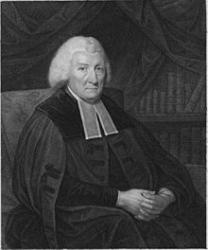Planning worship?
Check out our sister site, ZeteoSearch.org,
for 20+ additional resources related to your search.
- |
User Links
Search Results
Come Unto Me, All Ye Who Mourn
Author: Hugh Blair, 1718-1800 Meter: 8.6.8.6 Appears in 23 hymnals Hymnal Title: The Cyber Hymnal Lyrics: 1 Come unto Me, all ye who mourn,
With guilt and fear oppressed;
Resign to Me the willing heart,
And I will give you rest.
2 Here Jesus stands with open arms;
He calls, and bids you come;
Guilt holds you back, and fear alarms;
But see, there yet is room.
3 Room in the Savior’s bleeding heart;
There love and pity meet;
Nor will He bid the soul depart
That trembles at His feet.
Used With Tune: ST. ANNE
Come Unto Me, All Ye Who Mourn
ST. BERNARD
Meter: 8.6.8.6 Appears in 154 hymnals Composer and/or Arranger: John Richardson Hymnal Title: The Presbyterian Book of Praise Tune Key: E Flat Major Incipit: 51232 14325 36445 Used With Text: Come unto Me, all ye who groan
ST. BERNARD
Come unto me, all ye who groan
Author: Hugh Blair Hymnal: A Collection of Hymns for Public and Private Worship approved by the Presbytery of Charleston #d33 (1796) Hymnal Title: A Collection of Hymns for Public and Private Worship approved by the Presbytery of Charleston Languages: English
Come unto me, all ye who groan
Come unto me, all ye who mourn
Hymnal: A Collection of Hymns, for the Christian Church and Home #174 (1843) Hymnal Title: A Collection of Hymns, for the Christian Church and Home Languages: English
Come unto me, all ye who mourn
Come unto me, all ye who mourn
Hymnal: A Collection of Psalms and Hymns for the Sanctuary #265 (1845) Hymnal Title: A Collection of Psalms and Hymns for the Sanctuary Languages: English
Come unto me, all ye who mourn
Anonymous
Person Name: Anon. Hymnal Title: Songs for the Service of Prayer Author of "Come unto Me, all ye who mourn" in Songs for the Service of Prayer In some hymnals, the editors noted that a hymn's author is unknown to them, and so this artificial "person" entry is used to reflect that fact. Obviously, the hymns attributed to "Author Unknown" "Unknown" or "Anonymous" could have been written by many people over a span of many centuries.
Anonymous
George Kingsley
1811 - 1884 Person Name: G. Kingsley Hymnal Title: Songs for the Service of Prayer Composer of "HEBER" in Songs for the Service of Prayer Born: July 7, 1811, Northampton, Massachusetts.
Died: March 14, 1884, Northampton, Massachusetts.
Kingsley played the organ at the Old South Church and Hollis Street Church in Boston, Massachusetts. He also taught music at Girard College in Philadelphia, Pennsylvania, served as music supervisor for public schools in Philadelphia, and compiled a number of music books, including:
Sunday School Singing Book, 1832
The Harmonist, 1833
The Social Choir, 1836
The Sacred Choir, 1838
The Harp of David, 1844
The Young Ladies’ Harp, 1847
Templi Carmina (Northampton, Massachusetts: 1853)
The Juvenile Choir, 1865
--www.hymntime.com/tch
George Kingsley
Hugh Blair

1718 - 1800 Person Name: Hugh Blair, 1718-1800 Hymnal Title: The Cyber Hymnal Author of "Come Unto Me, All Ye Who Mourn" in The Cyber Hymnal Blair, Hugh, D.D., eldest son of John Blair, merchant. Edinburgh, was born at Edinburgh, April 7, 1718. In 1730 he entered the University of Edinburgh, where he graduated M.A. in 1739. In 1742 he was ordained parish minister of Collessie, in Fife, became, in 1743, second minister of the Canongate, Edinburgh, in 1754 minister of Lady Yester's, and in 1758 joint minister of the High Church (now styled St. Giles's Cathedral). In 1762, while still retaining his pastoral charge, he was appointed the first Professor of Rhetoric in the University of Edinburgh—a chair founded for him. He received the degree of D.D. from the University of St. Andrews, in 1757. He died in Edinburgh, Dec. 27, 1800.
In 1744 Dr. Blair was appointed a member of the Committee of Assembly which compiled the Translations and Paraphrases of 1745, and in 1775 of that which revised and enlarged them. To him are ascribed by the Rev. W. Thomson and the Rev. Dr. Hew Scott, Nos. 4, 33, 34, 44, of the 1781 collection. He is also credited with the alterations made on Paraphrases 32 and 57, in 1745-51, and on Paraphrase 20, in 1781. The Rev. J. W. Macmeeken would ascribe these 4 Paraphrases to his second cousin, the Rev. Robert Blair, author of The Grave [eldest son of the Rev. David Blair, born in Edinburgh, 1699, ordained Parish minister of Athelstaneford, East Lothian, in 1731,appointed, in 1742,a number of the Committee which compiled the 1745 collection, died at Atholstaneford. Feb. 4, 1746]. Dr. C. Rogers, in his Lyra Britannica (pp. 66 & 664, ed. 1867) holds that, though Dr. Hugh Blair may have altered Paraphrases 44 and 57, neither he, nor Robert Blair, wrote any original hymns. While the weight of opinion and of probability is in favour of Dr. Hugh Blair, no very definite evidence is presented on either side, though the records of the Presbytery of Edinburgh in 1748 show Dr. Hugh Blair as selected to revise Nos. 18 (7 in 1781), 21 (46 in 1781), and probably others. [Rev. James Mears, M.A.]
-- John Julian, Dictionary of Hymnology (1907)
Hugh Blair


 My Starred Hymns
My Starred Hymns


